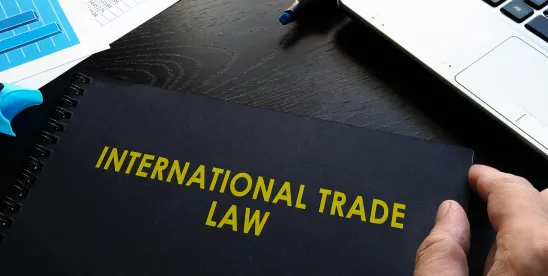Fluency in Incoterms® is helpful for any contractor or materials supplier engaged in international trade. Most recent articles discussing construction and international trade emphasize how tariffs can increase construction costs and create project delays. These discussions usually focus on mitigating the cost and time impacts of tariffs via escalation, force majeure, and other change-related provisions. All these methods are appropriate if you are an upstream contractor or project owner not directly procuring goods from an international source. But what if your contract requires you to procure materials or equipment from Canada, Mexico, or overseas?
International trade poses significant challenges for the unprepared. Countries have diverse legal systems and geopolitical strategies that influence how they tax goods crossing borders and resolve trade disputes. Procuring goods internationally can also involve long lead times, potentially disrupting a project’s critical path. If you are procuring goods from an international source, you should be aware of your rights and responsibilities under your purchase order.
To simplify the complexities of international trade, most buyers and sellers elect to use Incoterms. An Incoterm is a standardized trade term (abbreviated by three-letter acronyms) that automatically incorporates a host of risk-related provisions, including responsibility for import/export duties, customs clearance, carriage, insurance, and unloading/loading. The International Chamber of Commerce (ICC) defines 11 Incoterms, seven applicable to any mode of transportation and four specific to sea and inland water transport. Over 90% of international trade contracts incorporate Incoterms, which are used in 31 languages across more than 120 countries.
Incoterms create a spectrum of risk profiles for buyers and sellers. For example, the Ex Works (EXW) Incoterm (e.g., EXW “Seller’s Canadian Sawmill”) limits the seller’s risk. The seller is responsible for packaging the goods and making them available at its facility; the buyer is responsible for carriage charges, delivery, and import and export duties. The risk of loss passes to the buyer when the seller makes the goods available for pickup. In contrast, the Delivered-Duty Paid (DDP) Incoterm (e.g., DDP “Jobsite”) significantly limits the buyer’s risk. The seller is responsible for carriage charges, delivery, and import and export duties. The risk of loss passes to the buyer at the place named in the DDP Incoterm. However, Incoterms do not address critical terms such as contract price, delivery timelines, payment methods, title transfer, or liability for delayed or defective goods. Buyers and sellers should ensure these are covered elsewhere in their purchase order.
Consider a recent case: In Glass-Inspiration GmbH Design ± Engineering (Austria) v. M.G. McGrath, Inc. Glass & Glazing (U.S.A.), a 2024 ICC arbitration decision, a U.S.-based glass and glazing subcontractor engaged an Austrian supplier to procure glass and stone panels under an EXW Incoterm for the reconstruction of the St. Nicholas Greek Orthodox Church in New York City, which was unfortunately destroyed on September 11, 2001.
After the purchase order was signed and manufacturing was well underway, the project’s general contractor terminated its contract with the church, and construction was halted. The Austrian supplier made the panels available for shipment in Vienna, but the U.S. subcontractor failed to pay for the panels or collect them, leading to significant storage costs for the supplier.
The supplier filed an arbitration demand under Austrian law to recover these costs. The ICC panel ruled in the supplier’s favor, as the EXW Incoterm obligated the subcontractor to pay for the panels once they were available for pickup. Despite the complexities of international law and the upstream owner–contractor dispute, the panel’s decision hinged on the Incoterm rules.
Mastering Incoterms is vital for contractors and suppliers navigating the global marketplace. These standardized terms clarify responsibilities for costs, risks, and logistics, reducing uncertainty in international transactions.




 />i
/>i

